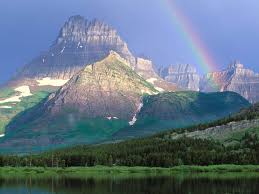 The federal government issued final rules establishing the first greenhouse gas emissions standards for automobiles and light trucks on Thursday, ending a 30-year battle between regulators and automakers.
The federal government issued final rules establishing the first greenhouse gas emissions standards for automobiles and light trucks on Thursday, ending a 30-year battle between regulators and automakers.
The new rules, jointly written by the Transportation Department and the Environmental Protection Agency, set emissions and mileage standards that will translate to a fleet average of 35.5 miles a gallon by 2016, nearly a 40 percent improvement over today’s fuel economy.
Officials said the program would save the owner of an average 2016 car $3,000 in fuel costs over the life of the vehicle and eliminate emissions of nearly a billion tons of climate-altering gases over the lives of the regulated vehicles. Reaching the new efficiency level will add about $1,000 to the cost of the average new car by 2016, according to industry and government estimates.
More...
 Director James Cameron and actress Sigourney Weaver are in Brazil to protest against a proposed dam in the Amazon that would be the world's third-largest hydroelectric project. The Hollywood celebrities will join about 1,000 demonstrators in Brasilia's streets Monday as they urge the government to halt the planned Belo Monte project.
Director James Cameron and actress Sigourney Weaver are in Brazil to protest against a proposed dam in the Amazon that would be the world's third-largest hydroelectric project. The Hollywood celebrities will join about 1,000 demonstrators in Brasilia's streets Monday as they urge the government to halt the planned Belo Monte project.
 Environmental Glance
Environmental Glance Glacier National Park has lost two more of its namesake moving icefields to climate change, which is shrinking the rivers of ice until they grind to a halt, a government researcher said Wednesday.
Glacier National Park has lost two more of its namesake moving icefields to climate change, which is shrinking the rivers of ice until they grind to a halt, a government researcher said Wednesday. The federal government issued final rules establishing the first greenhouse gas emissions standards for automobiles and light trucks on Thursday, ending a 30-year battle between regulators and automakers.
The federal government issued final rules establishing the first greenhouse gas emissions standards for automobiles and light trucks on Thursday, ending a 30-year battle between regulators and automakers. The first of several British investigations into the e-mails leaked from one of the world's leading climate research centers has largely vindicated the scientists involved.
The first of several British investigations into the e-mails leaked from one of the world's leading climate research centers has largely vindicated the scientists involved. Koch Industries, which is owned and run by two Kansas-based brothers and has substantial oil and chemicals interests, spent the sum between 2005 and 2008 to finance "organisations of the 'climate denial machine'", claims the environmental campaign group Greenpeace.
Koch Industries, which is owned and run by two Kansas-based brothers and has substantial oil and chemicals interests, spent the sum between 2005 and 2008 to finance "organisations of the 'climate denial machine'", claims the environmental campaign group Greenpeace. Coral reefs are dying, and scientists and governments around the world are contemplating what will happen if they disappear altogether. The idea positively scares them.
Coral reefs are dying, and scientists and governments around the world are contemplating what will happen if they disappear altogether. The idea positively scares them. The moratorium on commercial whaling, one of the environmental movement's greatest achievements, looks likely to be swept away this summer by a new international deal being negotiated behind closed doors.
The moratorium on commercial whaling, one of the environmental movement's greatest achievements, looks likely to be swept away this summer by a new international deal being negotiated behind closed doors.






























